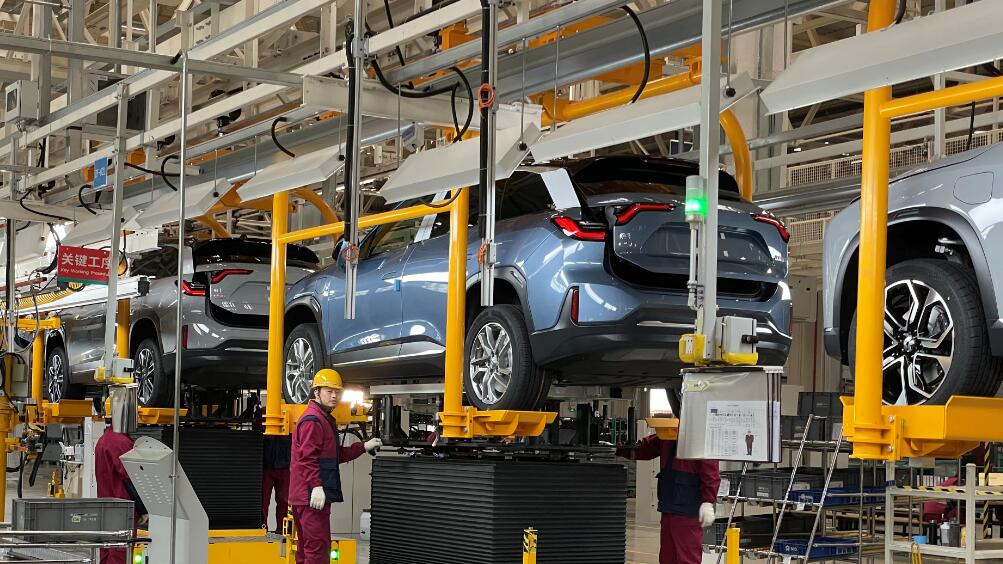Nio suspends production for 5 working days due to chip shortage
The global semiconductor shortage is growing, and Chinese electric vehicle (EV) maker Nio (NYSE: NIO) has become the latest to be affected.
Nio on Friday announced that it decides to temporarily suspend the vehicle production activity in the JAC-Nio manufacturing plant in Hefei for five working days starting from March 29, 2021, due to a semiconductor shortage.
The overall supply constraint of semiconductors has impacted its production volume in March 2021, the company said in an announcement.
Nio expects to deliver approximately 19,500 vehicles in the first quarter of 2021, down from the previously released outlook of 20,000 to 20,500 vehicles.
Nio narrowed its gains to less than 1% in pre-market trading on Friday, after it rose nearly 4% at one point.

In a previous conference call in March, Nio Chairman and CEO William Li said that the chip supply did have some impact on the second quarter, "at the moment we can basically meet normal production demand, but the risk is really high."
Li said at the time that battery supply was also a bottleneck. Nio has the ability to produce 10,000 cars per month, but is constrained by the supply chain and can only guarantee a full supply chain capacity of 7,500 units per month.
Supply capacity is expected to catch up in July this year, he said.
The shortage of automotive chips is expected to last six months to nine months, and the problem of mismatch and imbalance between supply and demand will persist, Li Shaohua, deputy secretary-general of the China Association of Automobile Manufacturers, said early this month.
In January 2021, the impact of the shortage of chips was shown in China's decreased auto production, Li said at a seminar of the Ministry of Industry and Information Technology.
China's auto production and sales in January were 2.388 million and 2.503 million units, down 15.9% and 11.6%, respectively, from December 2020.
Excluding data for the years of 2017 and 2020 when Chinese New Year in January saw a significant drop in production compared to the previous month, the drop in auto production in January 2021 compared to the previous month due to the chip shortage was significantly larger than in 2016, 2018 and 2019. Among several factors, chips are one of the most important effects.
The larger the car companies and parts companies in the industry, the greater the degree of impact, Li said, adding that the reason is that large companies have a higher demand for chips, and their own production rhythm is affected to a deeper degree in the case of sudden changes in the original supply cycle.
Nio delivered 5,578 vehicles in February, down 22.8 percent from January, amid large fluctuations in deliveries due to the Chinese New Year.
From January to February, Nio delivered a total of 12,803 vehicles, up 455 percent from 2,305 vehicles in the same period last year.

(Graphic by CnEVPost)
It's worth noting that January through February is traditionally a slow period in the Chinese auto market, and the Chinese New Year holiday during this period can make deliveries volatile.
Last year, the Chinese New Year holiday ran from January 24 to January 31, and this year, it runs from February 11 to February 17.
Nio delivered 17,353 new vehicles in the fourth quarter of 2020.

(Photo: CnEVPost)

